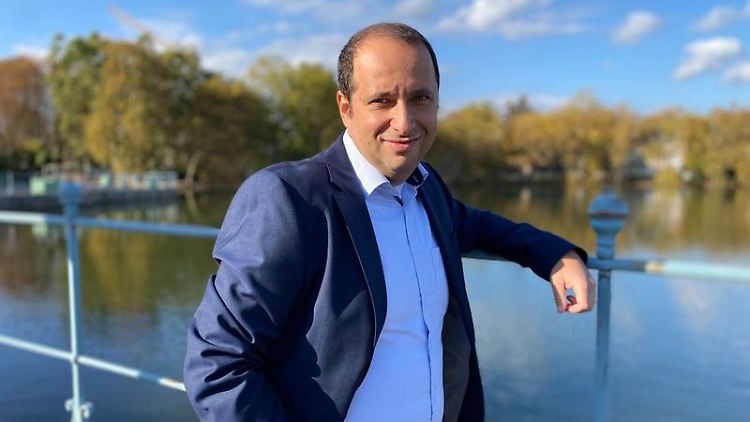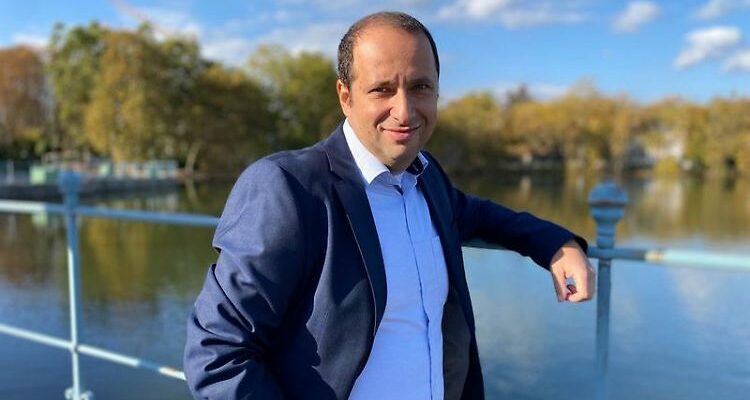Historian Alexander Friedman is certain that Vladimir Putin would have won a democratic election. The expert predicts that the Kremlin leader will become even more radical in his new term. He does not rule out an escalation of the conflict with the West – and draws historical parallels to the First World War.
Even though the election in Russia was fraudulent, no one doubts that the majority of the population supports Vladimir Putin and his war policies. Historian Alexander Friedman is certain that the Kremlin leader would have won a democratic election. The Eastern Europe expert predicts that the “embarrassed” Putin will become even more dangerous and radical in his new term. Friedman does not rule out an escalation of the conflict with the West – and draws historical parallels to the First World War.
ntv.de: How do you assess the results of the elections? Are they surprising?
Alexander Friedman: There is a lot of talk about election fraud. We are talking about possibly 20 million or even more than 30 million ballot papers that were forged. But Putin certainly won these elections, if what was held can be called elections at all. He received significantly more votes than his rivals – possibly over 50 percent, perhaps over 60 percent. But this result of 87 percent is certainly a joke.

Alexander Friedman has a doctorate in historians. He teaches contemporary history and Eastern European history at Saarland University and at the Heinrich Heine University in Düsseldorf.
Would Putin have won if an anti-war candidate had been allowed to run?
I think so. I would almost say that Putin could have held a democratic election under the current circumstances. And he would still have won it, although with effort and not so easily.
Then why was there no democratic election?
Putin’s victory would then not be so clear. Another candidate might have gotten 10, 15 or even 20 percent of the vote. And the Russian leadership definitely doesn’t want that. That’s why anti-war candidates like Ekaterina Duntsova or Boris Nadezhdin were not admitted.
And the most important opposition politician died behind bars a few weeks before the election.
I think it was important for the government to use the result to show that Navalny and his death had no influence on these elections at all. This 87 percent is a message: We have even eliminated Navalny, the face of the opposition. And yet we celebrate a spectacular result. We can do anything we want.
What is the most important takeaway from this election for you?
After this election at the latest, one can no longer say that the war policy can be traced back solely to Putin and those around him. Putin has positioned himself as a war candidate, and the war was the focus of his election campaign. And despite fraud, there were tens of millions of Russians who cast their votes for Putin and thus also bear moral responsibility for Putin’s policies.
Nobody doubts that the majority voted for Putin. The term “Putin’s War”, which Chancellor Scholz coined at the beginning of the war, was already a clear wishful image of German politics back then. People saw protests in Russia and hoped that perhaps most Russians would be against the war after all. But most Russians support this brutal war that has been going on for more than two years. During this time we have already learned a lot about the war, including in Russia.
It is often said that propaganda is to blame for the Russians not knowing what is going on in Ukraine.
If people want to inform themselves, they can do so. Yes, many are victims of state propaganda, but today’s Russia cannot be compared to the Third Reich or the Stalinist Soviet Union, or even to today’s China. People still have access to information. They have Telegram, YouTube, they have access to alternative sources of information. I will therefore not accept this excuse. They can inform themselves, they can find out what is happening in Ukraine. And many people probably suspect what bad things actually happen there. And yet tens of millions of people voted for Putin. Putin, who is responsible for this policy, Putin, who is considered a war criminal and for whom there is an arrest warrant. And unfortunately that is a bitter fact. His policies and thus also the war against Ukraine are supported or at least approved by the majority.
Can the war in Ukraine now escalate further?
Putin is a vengeful person, but thanks to his KGB character, he can control his feelings and emotions well – only to strike brutally afterwards. The last week has been complicated for the Kremlin. There is much to suggest that the attacks by so-called Russian volunteers fighting on Ukraine’s side were significantly more successful than the Russian side portrays. There were also several Ukrainian attacks on oil refineries. They are also said to have caused significant damage to the Russians. And now the Russian side is required to respond. During election week, Putin did not want to distract from his triumph. But now he will probably do something. The mood in propaganda has become even harsher and more aggressive in recent days. Therefore, attempts at spectacular attacks or operations can now be expected.
The opposition had called for a “Lunch Against Putin” protest. Many people protested in front of Russian embassies abroad. In Russia, on the other hand, not much. Does this just have to do with fear, or are there other reasons too?
Some people in Russia probably didn’t understand the purpose of this action. It was a controversial question, especially among Putin opponents, whether one should go. And if so, who should you vote for? I think a lot of people who aren’t for Putin just stayed home on election day.
Two days after the election, Putin called on his secret service, the FSB, to hunt down “traitors.” Is this a sign that the repression is only just beginning?
The regime will most likely become even more brutal, more repressive and more aggressive than before. There is a clear dynamic with Putin. With each term in office, there is less freedom and democracy in Russia and more repression.
Many fear a new wave of mobilization.
I don’t necessarily think that Putin will start a new mobilization or purges right now. That’s not his style. He uses violence, but only when he cannot enforce his will using other methods. But violence, war and repression are of course part of his political repertoire. And it is very likely that he will apply all of this in his new term in office. The trend is in this direction. World peace is now being demanded even more by Russia under Putin, and a qualitative increase that could lead to a direct conflict with the West cannot be ruled out.
Will Putin become even more dangerous for the West?
This new, bitter Putin, who is becoming more and more radical, who has an arrest warrant against him and who is openly perceived as an enemy by the West, is a particularly dangerous Putin. Because of his age, he also has to reckon with the fact that it may be his last term in office and that he actually doesn’t have that much time to achieve his goals: namely the mistakes of 1989/1991 – from his point of view, the collapse of the Soviet Union was one Mistakes – to correct, to re-establish Russia as a great power. He probably doesn’t have much time left to conquer zones of influence in Europe. And that can only lead to the radicalization of his politics.
This is a bleak picture. Putin enjoys popular support, he doesn’t care about anything and he is old, so he has nothing to lose. Can he be expected to start a nuclear war before he dies?
I would say we have to expect it. We should hope that this doesn’t happen – this scenario is not at all a given – but we should take the danger into account. But I think his calculations are still different. He thinks the West is weak and far too decadent. And he is convinced that with his threats he will achieve his goals without having to wage a world war. When Putin says he doesn’t plan to start a world war, for once I’m willing to believe him. He knows what a world war means and what consequences it could have. He consciously plays on these fears in the hope that the West will give in and meet his demands. I think that’s exactly the line he’s taking now.
If it doesn’t plan to do that, then things are looking good for the West, right?
We know from history: If you, like Putin, play with such dangerous things, you can trigger a war, even if you don’t necessarily intend it. In this context, I am thinking of the First World War and the brilliant metaphor of the Australian historian Christopher Clark, who described the great powers of the time as “sleepwalkers” in his book of the same name. For a long time they thought they could balance over the abyss; They were confident that tensions were under control and the conflict would not escalate. But then the balance suddenly collapsed, resulting in the devastating First World War.
Uladzimir Zhyhachou spoke to Alexander Friedman
